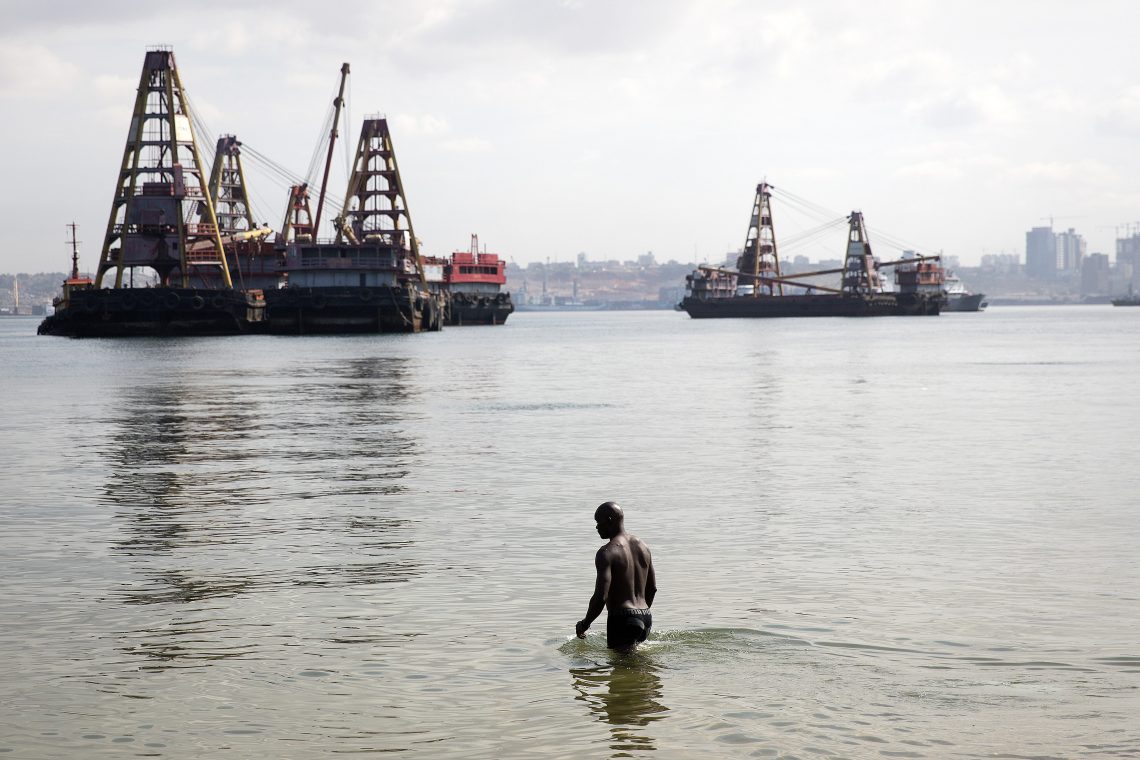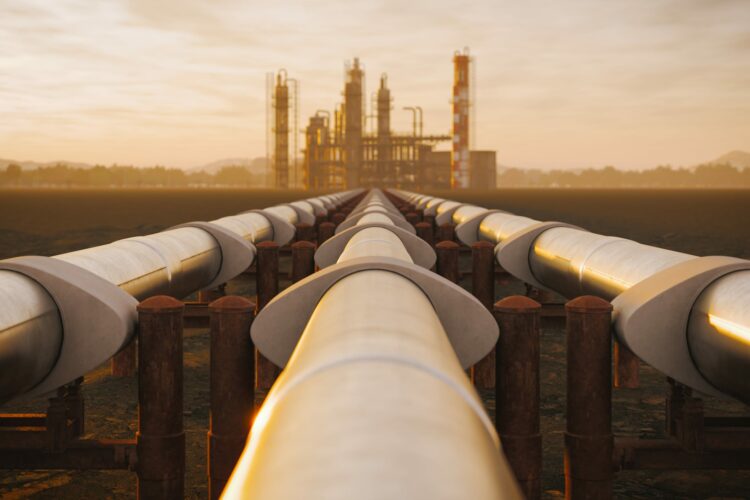African energy suppliers could help Europe wean itself off Russian oil and gas.
 Africa’s oil and gas sector has been held back by insufficient foreign investment but could undergo a renaissance given Europe’s need for new supplies. © Getty Images
Africa’s oil and gas sector has been held back by insufficient foreign investment but could undergo a renaissance given Europe’s need for new supplies. © Getty Images
×In a nutshell
Europe urgently needs new sources of energySeveral African countries have the potential to increase suppliesForeign investment in infrastructure is urgently needed
From the beginning of the war in Ukraine, several European leaders knew that cutting off Russian energy supplies immediately was not a real possibility. Hungary, the Czech Republic and Slovakia have been especially reluctant to freeze their oil imports from Russia. The European Commission reviewed its sanctions package and gave these countries extra time – Bratislava and Prague now have until mid-2024, and Budapest until the end of 2024, to comply with the agreed reduction targets.
German Chancellor Olaf Scholz has also stated that he considers Russian energy supplies “essential” for daily life in Europe: “Europe’s supply of energy for heating, for mobility, power supply and for industries cannot, at the moment be secured otherwise.”
Changing this state of affairs requires a substitute supplier. Considering the reluctance of major players like Saudi Arabia and the United Arab Emirates to increase their quotas, Africa could emerge as an alternative, spearheaded by Nigeria, Angola, Algeria and Libya – the continent’s leading oil producers.
Western companies have traditionally been reluctant to invest in Africa.
But scaling up production in these countries requires substantial investment. Until now, the West had little incentive to fund African hydrocarbon infrastructure, especially with the green fever for renewables.
Against the backdrop of the energy transition, the war in Ukraine came as a perfect storm. Given perceptions of nuclear power as a “dirty” energy source, gas emerged as the perfect bridge fuel. The problem is that Europe’s main gas provider is Russia.
The ban on Russian imports proposed by the United States, Canada, and the United Kingdom makes sense. However, for the time being, it is impossible to implement. Even optimistic commentators say the most Europe can afford to cut in one year is a third of its imports. In 2020, 50.5 percent of German electricity came from renewable sources – wind, solar, biomass and hydropower – 36.5 percent from fossil energy (coal and natural gas), and 13 percent from nuclear power. Hungarian Prime Minister Viktor Orban recently said that Hungary would need at least five years to free itself from Russian energy imports. Landlocked countries – like the Czech Republic and Slovakia – will find it even more difficult to secure alternatives.
Europe is facing a dilemma: on one hand, it is under pressure to turn to natural gas to reduce its carbon emissions, and on the other, it wants to impose sanctions on Russia.
There are not many producers that could solve this quandary. For gas, there is Qatar, Azerbaijan, the Scandinavian countries and the U.S. For oil, Saudi Arabia and the UAE could increase production, but they seem unwilling to do so. Countries like France, Slovakia and the Czech Republic have concluded that their reliance on Russian gas will not be overcome in the short run. Italy is more optimistic, setting the target to late 2023, or even before.
African energy renaissance
Europe’s current energy predicament could unlock an African renaissance not only for fossil fuels, but also for hydroelectric projects, like the Inga Dam in the Democratic Republic of Congo.
Angola, Africa’s second-largest oil producer after Nigeria, could see an energy boom. On April 12, an Italian government delegation signed a partnership agreement to import Angolan natural gas. With 9 billion barrels of proven oil resources and 13 trillion cubic feet of proven natural gas reserves, Angola is a major energy player. Oil production has had ups and downs in the last years but picked up in early 2022 with around 1.16 million barrels per day compared to Nigeria’s 1.35 million. The reason behind the previous decline was the lack of investment, especially after the drop in prices in 2014.
×Facts & figures
Major oil and gas projects underway in Angola
The Kaombo Project: located 150 kilometers off the coast is the biggest Angolan ultra-deepwater oil field and includes the offshore Block 32 unit. Total, Sinopec, ExxonMobil, Sonangol and Galp, are – directly or through subsidiaries – involved in the project, estimated to hold reserves of 650 million barrels of oil.
Angola LNG Project: in Soyo, 300 kilometers north of Luanda, the LNG Plant Project has the capacity to process 1.1 billion cubic feet of natural gas daily, and about 5.2 million tons of LNG annually.
PSVM Project: located in Block 31, 400 kilometers north of Luanda, it is a complex that will produce approximately 160,000 barrels of oil and 245 million cubic feet of gas per day. Several foreign companies like BP and Statoil are associated with Angola’s Sonangol to carry out the project.
East and West Hub and CLOV: Located 350- and 140-kilometers northwest of Luanda respectively, the two projects also involve major foreign producers as well as Sonangol.
Western companies have traditionally been reluctant to invest in Africa. But with rising prices, the main question for African energy players is whether major energy companies will be willing to invest enough to allow African production to reach European markets in time to replace Russian gas imports. Projects like the Trans-Saharan gas pipeline, which would transport Nigeria’s gas to Europe through Niger to Algeria and which would cost an estimated $13-15 billion, still exist only on paper.
Around 300 billion euros will be available from the EU to finance new initiatives to find alternative energy supplies so as not to depend on Russia.
In theory, there is a possibility that in the future, African producers could replace at least, in part, Russian oil supplies. But for gas, building the required infrastructure for operational export service will take time and money. There are currently three operating pipelines bringing natural gas from Africa to Europe: Transmed, from Algeria to Italy, via Tunisia; the submarine Medgaz, connecting Algeria to Spain; and Greenstream, connecting Libya to Sicily.
Around 300 billion euros will be available from the EU to finance new initiatives allowing European countries to find alternative energy supplies so as not to depend on Russia.
But Africa faces security problems, as Mozambique shows. Despite having major natural gas reserves, Mozambique’s resources have been held hostage because of political instability for more than a decade. The two liquefied natural gas (LNG) offshore projects, Afungi Peninsula’s Total and Rovuma’s ExxonMobil, have been delayed by terrorist activities in the Cabo Delgado province. Such security threats could derail large infrastructure projects like the Trans-Saharan pipeline.
×
Scenarios
European importers of Russian oil and gas will have to weigh their political will to sanction Russia against their energy security. African countries face other problems: even if demand for alternative oil suppliers increases overnight, the same will not happen with gas, despite it being more environmentally friendly. African countries will also have to face the effects of rising food and energy prices in their economies, and the consequences of the Ukrainian grain export disruption.
Proven natural gas reserves in Africa amount to 625 trillion cubic feet (Tcf). Nigeria (200 Tcf), Algeria (160 tcf), Mozambique (100 tcf), Egypt (63 trillion), Libya (53 tcf) and Angola (12 tcf) are the leading putative producers.
In an interview, Omar Farouk Ibrahim, secretary general of the African Petroleum Producers’ Organization was adamant that, with the war and economic turmoil, governments would forget the energy transition and look for more oil and gas. Considering the urgent need for African oil and gas producers to fund their economies and feed their people, he concluded that both sides would consider ramping up production.
Olivier Jouny, managing director of Total Angola, told Euronews that Total does not intend to stop oil and gas production in Africa. Alex Vines, head of the Africa Programme at Chatham House, says that “there’s a massive knock-on from the Ukraine crisis in Africa.”
ENI is leading the race with energy agreements with Angola, Congo-Brazzaville, Algeria and Egypt. Their LNG project will be operational off the coast of Congo next year, meaning 4.5 billion cubic meters of gas to Italy – one-sixth of what the country currently imports from Russia. It is likely that other European countries and other African producers will follow their example.
Source link : https://www.gisreportsonline.com/r/africa-alternative-energy/
Author :
Publish date : 2022-07-07 07:00:00
Copyright for syndicated content belongs to the linked Source.





